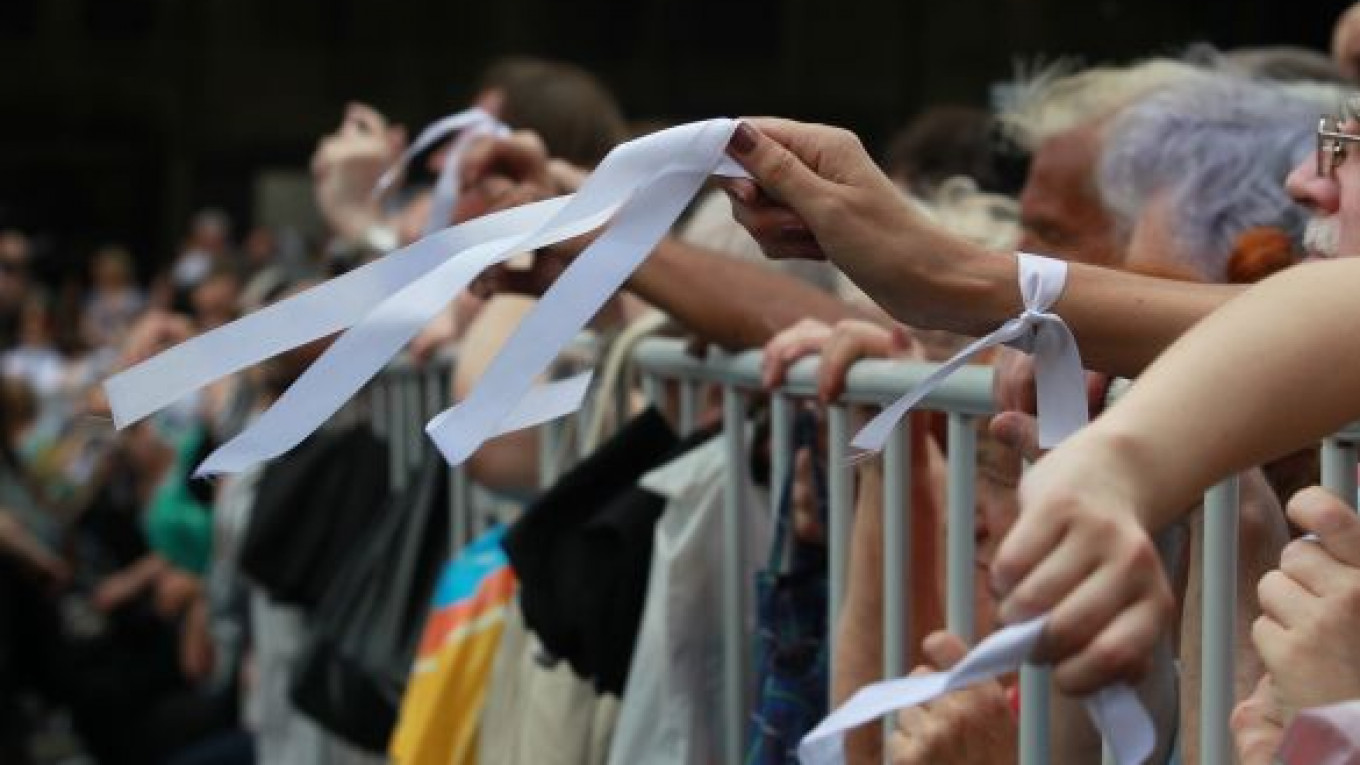The support of ordinary Russians for opposition protests has grown since Vladimir Putin was elected to a third term as president, according to a poll released Wednesday.
In July, 42 percent of respondents said they backed opposition protests, as opposed to 32 percent in March, the month Putin won the presidential election, the independent Levada Center pollster said on its website.
But July's figure fell short of the 44 percent recorded in December 2011, when the political opposition kicked off large rallies over disputed State Duma elections.
The latest survey also indicated a growing desire among Russians to take part in demonstrations against electoral fraud. From June to July, this indicator rose by 5 percentage points, from 14 percent to 19 percent. In addition, 5 percent of respondents said they would “definitely” attend such protests, the highest figure seen in the poll since it started to be conducted monthly in December.
Levada Center interviewed about 1,600 respondents in 45 regions for the survey, which had a margin of error of 3.4 percentage points.
A Message from The Moscow Times:
Dear readers,
We are facing unprecedented challenges. Russia's Prosecutor General's Office has designated The Moscow Times as an "undesirable" organization, criminalizing our work and putting our staff at risk of prosecution. This follows our earlier unjust labeling as a "foreign agent."
These actions are direct attempts to silence independent journalism in Russia. The authorities claim our work "discredits the decisions of the Russian leadership." We see things differently: we strive to provide accurate, unbiased reporting on Russia.
We, the journalists of The Moscow Times, refuse to be silenced. But to continue our work, we need your help.
Your support, no matter how small, makes a world of difference. If you can, please support us monthly starting from just $2. It's quick to set up, and every contribution makes a significant impact.
By supporting The Moscow Times, you're defending open, independent journalism in the face of repression. Thank you for standing with us.
Remind me later.






